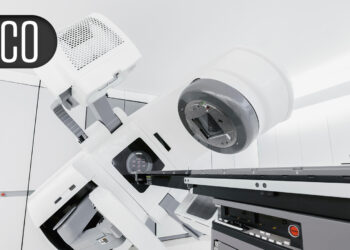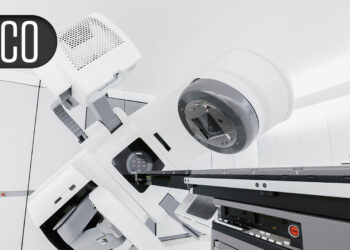An investigation has found a “concerning level of variation” in how 12-lead electrocardiogram (ECG) skills are taught in UK undergraduate paramedic programmes.
A report by the Health Services Safety Investigations Body (HSSIB) highlighted inconsistencies in teaching time, content detail, assessment methods, and instructor expertise.
A 12-lead ECG usually involves using 10 electrodes to record 12 different views of the heart’s electrical activity. It offers more comprehensive monitoring than other ECGs that use fewer electrodes.
ECG Interpretation a Critical Skill
Stakeholders in the report identified ECG interpretation as a “top five critical skill” for paramedics. One UK ambulance trust reported performing 19,000 ECGs per month – about one for every four patients.
However, the HSSIB findings suggest that most paramedics and paramedic students in the UK lack confidence in interpreting 12-lead ECGs, particularly in situations where patients may have more nuanced and complex conditions.
Coroner’s Report
The investigation followed the case of a 29-year-old woman with chest pain who later died of a heart attack. In a Prevention of Future Deaths report, the coroner highlighted paramedic education, training, and competence as factors in the patient’s death.
Evidence presented during the inquest highlighted concerns that although ECG interpretation formed part of initial and annual training for paramedics, no evidence was seen of any assessment to confirm their competence.
“Our recommendation and other learning in our report is aimed at improving paramedic education and training through consistency and clarity,” said Deinniol Owens, HSSIB deputy director of investigations in a statement. “Paramedics should be able to feel confident when interpreting ECGs to ensure the best outcome for patients who may need lifesaving treatment.”
ECG Education is “Hugely Variable”
The HSSIB interviewed paramedics, student paramedics, ambulance service managers, student paramedics, and academic staff. The core themes that emerged suggested that ECG education is “hugely variable” and lacks consistency.
Key challenges included:
- Limited training time, ranging from a few hours to one or two days over a 3-year course.
- Minimal exposure to more complex ECG cases during training.
- Heavy reliance on presentations rather than hands-on practice.
Most paramedics reported insufficient ongoing training to meet growing demands. Some also expressed frustration at rarely receiving feedback on patient outcomes, which could help improve their decision-making.
The report also noted inconsistency in instructor qualifications. Some institutions used cardiac specialists, including cardiologists and paramedics with additional cardiology qualifications and training. Others did not provide specialised teaching staff.
H igher education institutions cited a lack of effective feedback mechanisms to improve ECG training, further limiting their scope to improve and address ECG learning needs.
Assessment Standards Under Scrutiny
Current ECG assessment pass marks in paramedic science degrees stand at 40%. The College of Paramedics (CoP) and the Health and Care Professions Council (HCPC) argued this is too low given the risks of misinterpretation. The CoP recommended raising the pass mark for any module assessing ECGs to no less than 70% “with immediate effect.”
It also proposed establishing a professional exam to ensure standardised assessment upon paramedic registration.
Recommendations for Improvement
The HSSIB recommended that the HCPC and the CoP collaborate with relevant stakeholders to improve consistency in undergraduate training of 12-lead ECGs.
Specific areas of focus included:
- Defining the the ECG competency levels required for paramedic students.
- Setting minimum standards for ECG education, including teaching methods and instructor expertise.
- Enhancing training on patient-specific factors affecting ECG interpretation.
- Developing effective feedback mechanisms between higher education institutions and ambulance services.
The report also suggested that ambulance services support protected training time and ongoing professional development for paramedics. This should include patient-specific factors that may affect ECG interpretation when developing refresher training courses and regularly exposing paramedic students and paramedics to different clinical scenarios to develop and maintain 12-lead ECG competency.
It further recommended that acute hospitals and ambulance services could develop mechanisms to share information about patient outcomes where paramedics have undertaken a 12-lead ECG.
Annie Lennon is a medical journalist. Her writing appears on Medscape, Medical News Today, and Psych Central, among other outlets.
Source link : https://www.medscape.com/viewarticle/paramedic-ecg-training-lacks-consistency-report-finds-2025a10007et?src=rss
Author :
Publish date : 2025-03-27 16:00:00
Copyright for syndicated content belongs to the linked Source.














